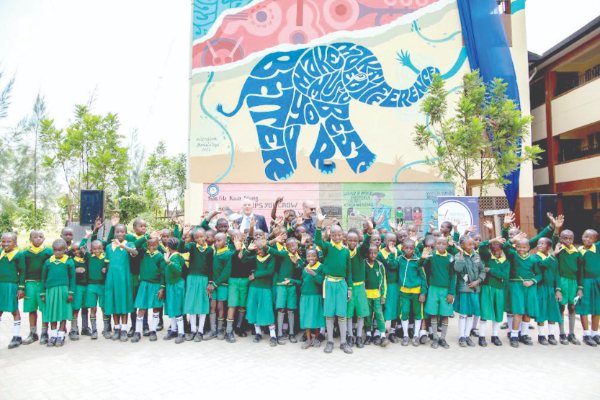Mainstreaming values, life skills education in the curriculum
By Irene.Githinji, June 26, 2023Education experts have been urged to focus on instilling value and life skills training to learners as a way of offering them a more holistic education.
Education Cabinet Secretary, Ezekiel Machogu, says education systems in Africa should make value and life skills an integral part of their curriculum.
He says that inculcating values and life skills in learners will enable them to navigate and deal with the constantly changing environment, which requires a multiplicity of skills.
“Research consistently demonstrates that life skills, such as problem-solving, collaboration, respect, and self-awareness are not only essential for job success, but also for academic achievement and holistic development. However, limited awareness and understanding of these skills persist across the continent,” he noted.
The CS says that the training for Competency Based Curriculum (CBC) is retooling teachers on how to assess life values and skills for learners as part of ongoing education reforms.
Amidst the need to impart value and life skills among learners, the question on how to assess this thematic area has arisen.
Zizi Afrique Foundation Executive Director, Dr John Mugo says that thematic areas of values and life skills or core competencies, as referred in the CBC, have been a challenge because of lack of an assessment model.
“These are complex competencies, because we cannot be able to assess them the way we do for Physics, Mathematics or English, they have to be assessed in different ways that are complex,” said Mugo, who made the remarks during the first Value and Life Skills (VALI) Africa conference held recently, with participants drawn from Kenya, Uganda, Tanzania and Zanzibar.
The Assessment of Life Skills and Values in East Africa (ALiVE) report was also launched, which highlighted proficiency levels of adolescents in the East Africa countries.
He says the Regional Education Learning Initiative (RELI), which organised the conference, has been working together over the last three years learning from other countries how to assess this area and how the East Africa countries can do it for themselves.
Assessment, he says, must offer shared space and responsibilities, adding that a resilient approach is needed.
During this period, Mugo says three questions were addressed, including which of these competences are most important, how does one measure or assess them, what works in improving or nurturing these competences and how to assess the competences for the context of Kenya, Tanzania and Uganda.
“Broadening the focus and fully contextualising assessment is important for holistic learning. A paradigm shift is needed if we have to achieve the assessment of these life skills and values through our education systems,” he says.
Mugo also states that teacher assessment capacities need to be empowered and to develop their tools as a way of documenting rubrics that they can use.
Similarly, Imaginable Futures Principal Sam Mugacha notes that one of the key areas within CBC is life skills and the country has to ensure the system is well equipped to be able to build skills within learners.
On the assessment model, Mugacha says there is need to build capacity of local researchers to be able to develop homegrown evidence that can be used by policy makers to inform the right interventions to apply for all learners
He says that one lesson for the examining body is the importance of collaborating across all education stakeholders in the country to be able to support children.
According to the ALiVE report, evidence shows that high levels of life skills support adolescents’ abilities to cope with emotional, educational, and behavioural challenges in all aspects of their lives.
Despite the global concern for lifeskills education coupled with introduction of CBC in Kenya, Tanzania, and Uganda that emphasise teaching and learning of life skills and values, it is unclear how these have been assessed.
To generate large scale data on life skills and values among young people, RELI commissioned ALiVE initiative.
Over the three years (2020–2023), says the report, the objectives of the ALiVE were to develop contextualised, open-source tools for assessment of life skills and values in the East African context and generate large-scale data on life skills and values across the three countries.
It also sought to use the evidence to inform change and build capacities within the values and life skills member organisations.
“The goal of the initiative is to support the four national education systems in their focus on these competencies, inform regional policy throughout the East African Community, and contribute to global knowledge on the measurement of life skills and values in context,” says the new report.
The ALiVE initiative focused on developing an assessment of three life skills namely collaboration, problem solving, and self awareness.
The assessment targeted both in-school and out of-school adolescent boys and girls between 13 and 17 years of age, with 45,442 of them reached.
“The information provides the background for the assessment results that are needed to inform policy of the participating countries as they seek to include life skills and values in their national curricula,” says the report.
